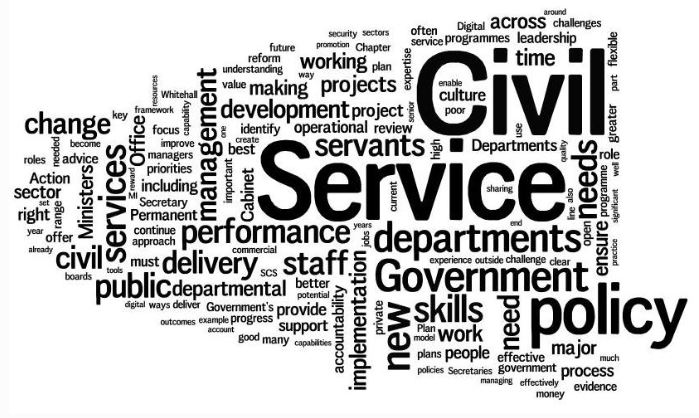Civil service and deterioration in its standard of conduct in India

Context: A letter-war between two sets of retired public officials (civil servants, judges and army officers), concerning the prevailing political and social situation (politics of hate and violence against the minorities, particularly Muslims) in the country, has been widely reported in the media recently.

Unfortunately, in neither of the formulations by the two sets of retired public officials, there is hardly any reference to the role of the civil service in whatever is happening or not happening in the country, concerning law and public order and the security of citizens.
This topic of “Civil service and deterioration in its standard of conduct in India” is important from the perspective of the UPSC IAS Examination, which falls under General Studies Portion.
The role of the civil servants in the country
- The police and magistracy, judicial courts and other regulatory agencies — not politicians — have been authorized and empowered by law to take preventive action against potential troublemakers, enforce the laws relating to criminal, economic and other offences, and maintain public order.
- In mature democracies, self-respecting public officials normally discharge their constitutional and legal responsibilities with honesty, integrity and their own conscience, firmly resisting the dictates of the vested interests.
An erosion in its standards
- The deterioration in civil service standards was evident during the National Emergency declared in 1975.
- The civil services, like other institutions including the judiciary, just caved in.
- The trend might have accelerated over the years.
- Now, no one even talks of civil service neutrality, although there is the rare purist who could be sticking to the old standards of behaviour.
Then and Now:
- Earlier, during communal or caste riots, the Administration focused on quelling the disturbances and restoring peace in the affected locality, without ever favouring one group over the other.
- Now, there are allegations of local officers taking sides in a conflict.
Civil service neutrality
- A civil servant’s pliant and submissive behaviour means an end to civil service neutrality and the norms and values that this trait demands, do not seem to bother either the political or bureaucratic leadership.
- Politicians could have a civil servant placed in an inconvenient position or even punish him, despite the protection and safeguards in Article 311 of the Constitution.
What are the norms and values that define neutrality?
- The norms that define neutrality are independence of thought and action; honest and objective advice; candour and, ‘speaking truth to power’.
- Associated with these norms are the personal values that a civil servant cherishes or ought to cherish, namely, self-respect, integrity, professional pride and dignity.
All these together contribute to the enhancement of the quality of administration that benefits society and the people.
How a dilution of standards can lead to corruption?
- The objective of a civil servant may, however, be at a discount when politicians are eager to serve their personal and party interests, and overzealous and ambitious officials dance to their tune, thereby leading to a dilution of standards.
- It could also create favourable conditions for both political and bureaucratic corruption.
Way forward
As B.R. Ambedkar rightly wrote,
“Constitutional morality is not a natural sentiment; it has to be cultivated and we must realize that our people have yet to learn it. Democracy in India is only a top-dressing on an Indian soil which is essentially undemocratic.”
Practice Question for Mains
- A civil servant’s pliant and submissive behaviour means an end to civil service neutrality. Critically examine. (250 Words, 15 Marks).

